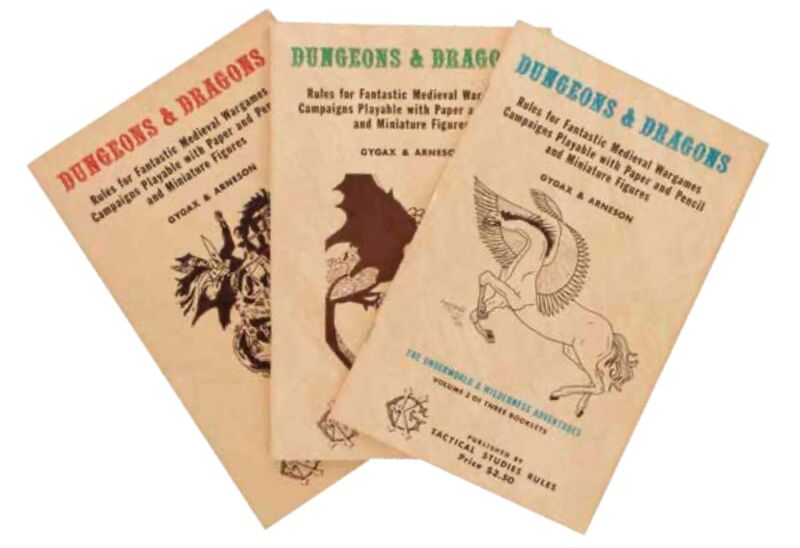
"We have just fromed [sic] Tactical Studies Rules, and we wish to let the wargaming community know that a new line of miniature rules is available."
With this letter, written by Gary Gygax to wargaming zine publisher Jim Lurvey, one of the founders of what would become TSR, announced that a January 1974 release for Dungeons & Dragons was forthcoming. This, plus other evidence compiled by Jon Peterson (as pointed out by the Grognardia blog), points to the last Sunday of January 1974 as the best date for the "anniversary" of D&D. The first sale was in "late January 1974," Gygax later wrote, and on the last Sunday of January 1974, Gygax invited potential customers to drop by his house in the afternoon to try it out.
You could argue whether a final draft, printing, announcement, sale, or first session counts as the true "birth" of D&D, but we have to go with something, and Peterson's reasoning seems fairly sound. Gygax's memory, and a documented session at his own house, are a good point to pin down the celebration of this thing that has shaped a seemingly infinite number of other things.
-
The evolution of The Beholder, through 3rd edition, in Dungeons & Dragons, from Art & Arcana: A Visual History.Wizards of the Coast/Ten Speed Press
-
The fourth and fifth edition versions of the Beholder, as seen in Art & Arcana: A Visual History.
As with playing a good campaign, you've got a lot of options for how you acknowledge D&D's long presence and deep influence. The game system itself, now under Wizards of the Coast, will this year push "One D&D," a name the D&D leaders sometimes stick with and sometimes don't. Whatever the next wave is called, it includes new handbooks, guides, and Monster Manual books that are not exactly a new "edition," but also an evolution. Books like Xanathar's Guide to Everything and Tasha's Cauldron of Everything will be codified and unified by a new sourcebook at some point, but all of it will be compatible with 5th Edition material.
Also, at some point this year, stamps celebrating D&D's 50th will be available from the US Postal Service, at least if you rush. Ten different designs, leaning heavily on the dragons, were commissioned based on existing illustrations. There's a documentary from Joe Manganiello (still in pre-production, seemingly). And there's a 500-plus-page non-fiction book, The Making of Original Dungeons & Dragons: 1970-1976, with research help from the aforementioned Peterson, containing never-before-seen correspondence between co-creators Gygax and Dave Arneson.
I grew up in the 1980s and 1990s, never actually playing Dungeons & Dragons, but its influence shaped vast amounts of my playtime and curiosity. I loved playing Hero Quest, without knowing that it was essentially an on-rails D&D setup. My cousin and I spent large parts of one summer attempting to play Marvel Super Heroes without understanding its D&D roots (or that it would always be a bit awkward with just two people).
And, of course, every video game, comic, novel, and other media I consumed that made a point of explaining how different classes worked, or the theory behind spells, owed something to D&D—by way of J.R.R. Tolkien and centuries of folklore tradition, of course. Tales keep inspiring other tales, and it's largely to our benefit.
Take a moment on this occasion to look back through some notable D&D coverage at Ars:
- A preview of D&D "Next" in 2012, when the system started streamlining on its way toward 5th Edition
- A full review of 5th Edition in 2016, after a year that saw staggering sales based on warm reception
- D&D's entry into the Toy Hall of Fame at the Strong National Museum of Play, alongside such icons as the Frisbee, the Barbie doll, and the Atari 2600
- Annalee Newitz's review of Rise of the Dungeon Master, a graphic novel about Gygax's powerful creativity but also notable flaws
- Last year's controversy over Wizards of the Coast's attempt to rework its Open Gaming License, the exodus it fomented, and its eventual rollback.
reader comments
179